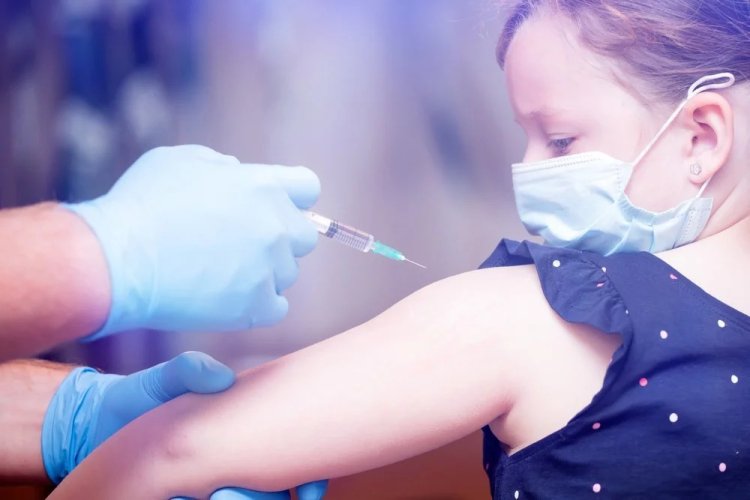A review found that COVID-19 vaccinations are effective against severe cases of the disease in kids and teenagers. However, the added advantage of vaccination in healthy children is negligible because the majority of kids have already contracted the SARS-CoV-2 virus and have developed natural immunity.
The Murdoch Children's Research Institute led a review of the international literature that was published in BMJ Paediatrics Open that examined the issues surrounding COVID-19 vaccination, particularly in low- and middle-income nations with high rates of community transmission and infection-derived immunity.
The review reported any roll-out of COVID-19 vaccines in low- and middle-income countries should also complement routine childhood vaccine programs including for measles, pneumonia and diarrhoeal disease that have a greater impact on illness and death,
The research found that two-thirds of children with COVID-19 who attended hospital in the first two years of the pandemic did not require medical intervention. The review reported that despite most children having been infected and severe infection could occur, deaths were extremely rare in children. Globally, 16,100 COVID-19 deaths have been reported in those up to 19 years old.
The review reported any roll-out of COVID-19 vaccines in low- and middle-income countries should also complement routine childhood vaccine programs including for measles, pneumonia and diarrhoeal disease that have a greater impact on illness and death,
The research found that two-thirds of children with COVID-19 who attended hospital in the first two years of the pandemic did not require medical intervention. The review reported that despite most children having been infected and severe infection could occur, deaths were extremely rare in children. Globally, 16,100 COVID-19 deaths have been reported in those up to 19 years old.
The review highlighted that although COVID-19 vaccinations in children were effective at the time they were tested, the benefits were lower in the current context of high infection-derived immunity. The extra gain was also much lower compared to other life-saving vaccines in low- and middle-income countries, where childhood deaths from other vaccine-preventable diseases were considerably higher.
The review noted many countries have still not introduced proven lifesaving vaccines, including pneumococcal, rotavirus and human papillomavirus, into their immunisation schedules. Additionally, the resources required for COVID-19 vaccine roll-out in these countries posed a considerable challenge, it stated.
Murdoch Children's Dr John Hart said although there was not strong evidence to support routine vaccination of all healthy children, it was different for high-risk children, especially those with disabilities and certain underlying conditions.
"Given the very high prevalence of risk factors for severe COVID-19 in low- and middle-income countries, vaccination against COVID-19 is an important consideration in all age groups, including children," he said. However, decisions should be made considering the direct benefits to the individual child, not broader benefits to the household or community related to transmission, particularly as the effectiveness of the vaccines against infection is temporary.
"If COVID-19 vaccines are made available to children, the opportunity should be taken to increase coverage of standard childhood vaccines such as for measles, pneumonia, rotavirus, polio and human papillomavirus. Preventative healthcare and treatment should also be provided at each encounter with the health system. This will help to address the indirect adverse effects of the pandemic on children."
Murdoch Children's Professor Fiona Russell said there was also a lack of public health data in low- and middle-income countries, which underscored the importance of ensuring equitable access to safe and effective vaccines for future epidemics before exposure to infection.
"In low- and middle-income countries, most people were infected by the time vaccines became available, highlighting the profound inequity in global vaccine distribution," she said. More needs to be done to prevent this from happening again."
"By the time vaccines became available for low-risk populations of otherwise healthy children, infection-derived immunity provided similar protection to vaccine-derived immunity and vaccine hesitancy was also increasing.
"Countries that have high rates of unvaccinated children now need to consider whether to vaccinate based on their own context as it would be important to not detract from routine vaccinations that are far more beneficial for children," Professor Russell added.



